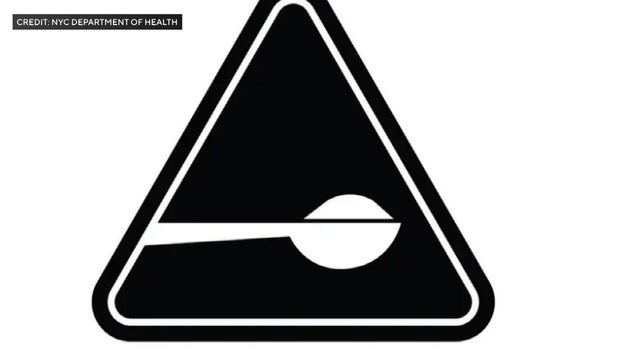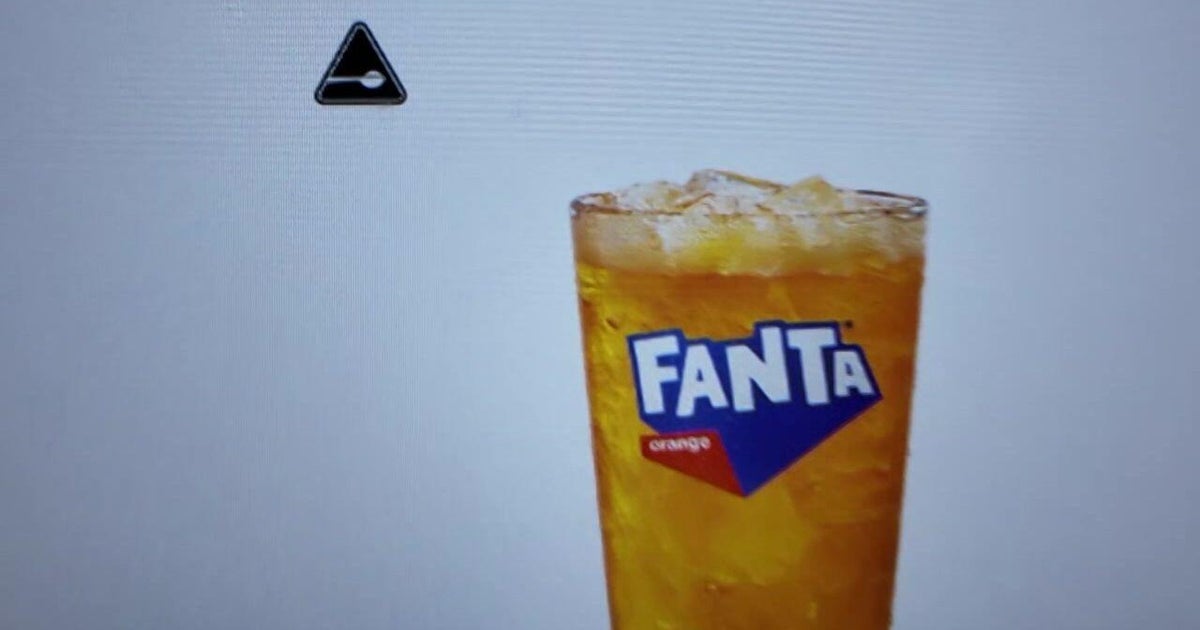The next time you’re buying something sweet at a New York City restaurant, you may notice a new warning comes with it – a triangle with a spoonful of sugar.
New York is the first city in the country to require chain restaurants put warning labels on some food or drink that contain 50 grams of added sugars, which is what the Food and Drug Administration recommends as the daily limit. Consuming more may increase the risk of type 2 diabetes.

This triangle with a spoonful of sugar indicates “added sugars” on restaurant menus.
NYC Department of Health
The law applies to nearly 4,000 restaurants across the five boroughs and goes into effect this month, about 10 years after the city started to require similar warnings for foods with more than the recommended daily limit of sodium.
Only chain restaurants are required to add the label, and it only applies to menu items that are prepackaged, like cans of soda, or things that are identical to packaged items, like fountain soda.
“I think you’ll see a lot of salads and salad dressings, for example, have a lot of added sugar,” said Dr. Pasquale Rummo, an associate professor at the NYU Grossman School of Medicine.
Products made in the restaurant, like milkshakes, are likely exempt.
Restaurants which don’t comply face a $200 fine.
Will the new warning label change customers’ minds about certain foods?
Rummo has a federal grant to study how this warning label impacts consumers’ behavior.
“The chances of consumers noticing this are less than we might have hoped,” he said. “I think it would’ve helped to have something that said ‘added sugar.'”
Some New Yorkers think it won’t make much of a difference.
“I think anyone who sees that sign probably won’t be deterred. I’m pretty sure that people go into restaurants with their mind much made up about what they wanna consume,” one person said.
Others, however, think it’s good to have the warning.
“I think the more options and more information you have, the better choices people can make and they can decide for themselves,” another person said.
“Sometimes when I see the salt one, I’m like, ‘OK, I shouldn’t get that,’ you know? So probably the sugar one will do the same,” another person said.
Rummo says anything that makes people think twice about their sugar is a step in the right direction.

